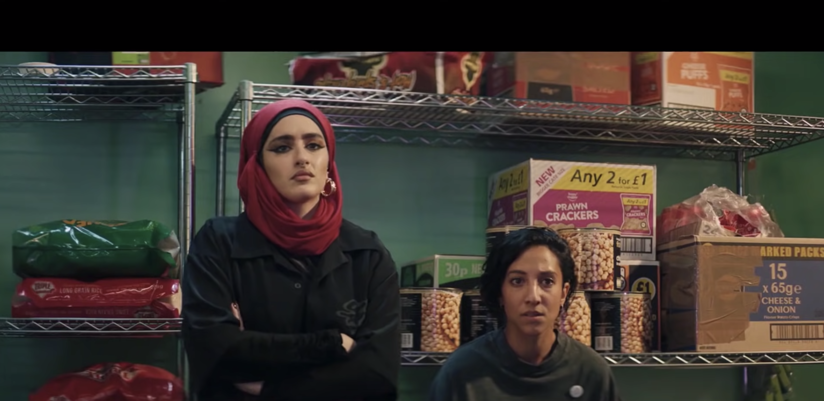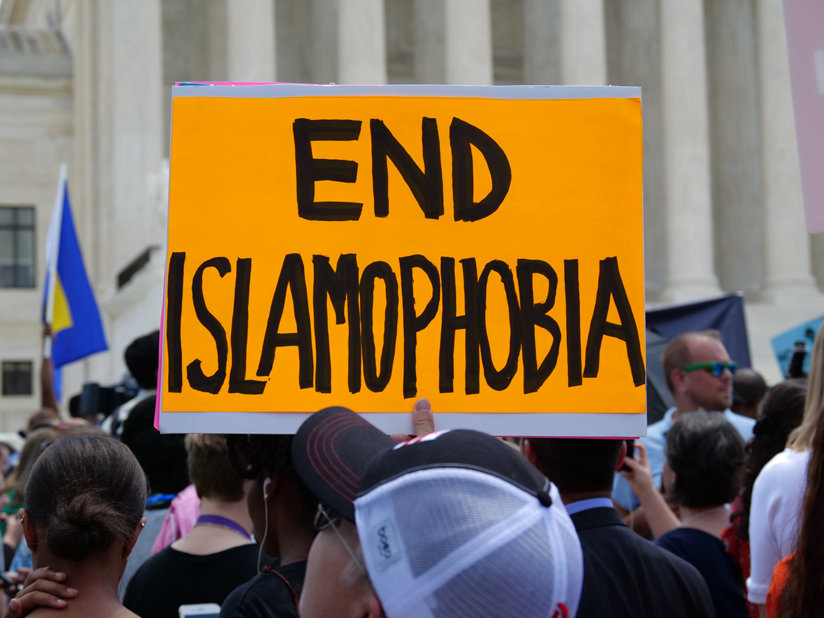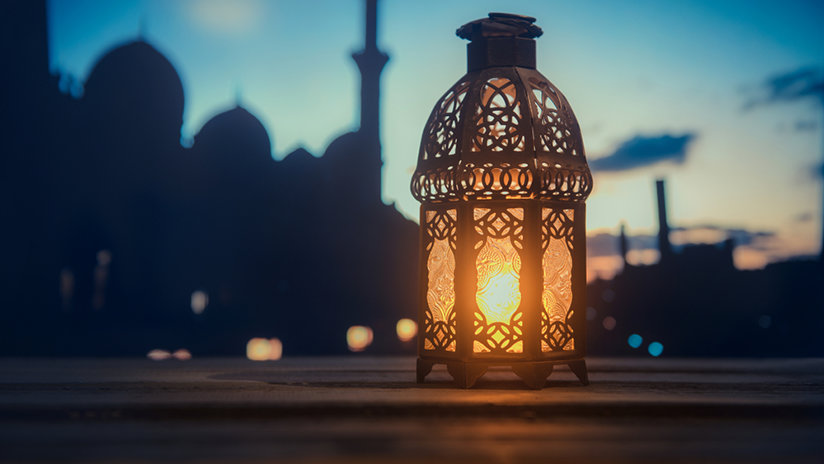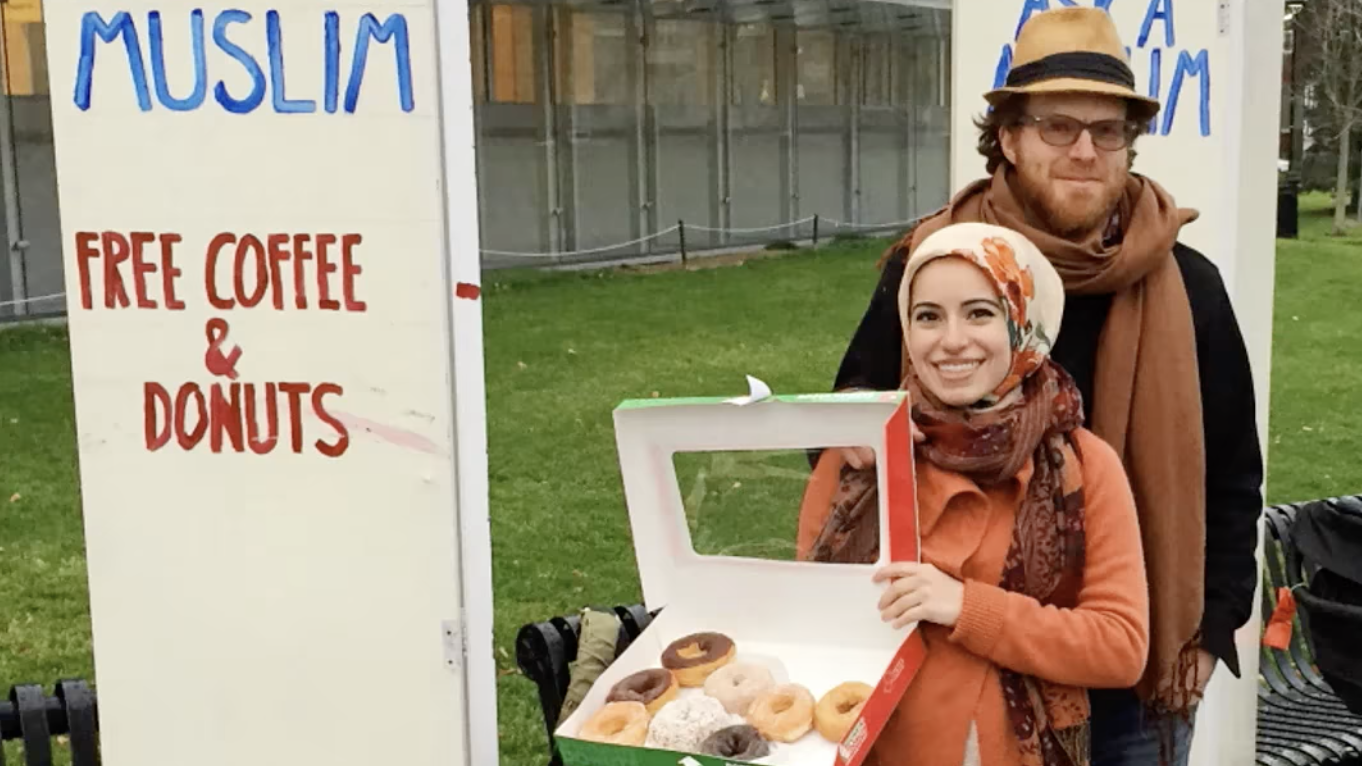
-
HOME
-
WHAT IS STANDOur Mission Our Values Our Help Contact
-
WHAT WE FIGHT FORReligious Freedom Religious Literacy Equality & Human Rights Inclusion & Respect Free Speech Responsible Journalism Corporate Accountability
-
RESOURCESExpert Studies Landmark Decisions White Papers FAQs David Miscavige Religious Freedom Resource Center Freedom of Religion & Human Rights Topic Index Priest-Penitent Privilege Islamophobia
-
HATE MONITORBiased Media Propagandists Hatemongers False Experts Hate Monitor Blog
-
NEWSROOMNews Media Watch Videos Blog
-
TAKE ACTIONCombat Hate & Discrimination Champion Freedom of Religion Demand Accountability
We Are Lady Parts—The Next Generation of Muslim Representation
I think it would be fair to say that, unfortunately, most of the Western World has grown up surrounded by negative depictions of Muslims. Again, recently, British and American TV dramas like Bodyguard and Homeland have been interpreted by many as furthering the “terrorist trope.” But, slowly, surely, some sun rays seem to be poking through the cumulus nimbus of misrepresented Islamic culture.
Over the last few years, an array of shows positively portraying Muslims in their daily lives has graced our TV screens. Witness Little Mosque on the Prairie (2007-2012), Resurrection: Ertugurl (2014-2019), Man Like Mobeen (2017) and East of La Brea (2019). Then came a much-anticipated Ramy (2019), which depicts a young man of Egyptian origin living in America, facing all the challenges that come with acclimating to Western culture.

And now, a meaningful addition to the “Muslim televisual stable” has emerged from the United Kingdom: welcome We Are Lady Parts, a six-episode show currently airing that features an all-woman Muslim punk band. Written and directed by Nida Manzoor, this little gem consciously strives—and succeeds—to smash through stale, preconceived ideas regarding Islamic members of our society (and Arabs and women in general, for that matter).
As the Financial Times aptly put it: “We Are Lady Parts is among a wave of shows casting off stereotypes…The well-worn trope of oppressed Muslim women is nowhere to be seen among these tattooed, anarchic rebels, who are, nevertheless, practising Muslims. When they’re not prostrating in prayer, they are ripping through provocative punk anthems such as ‘Nobody’s Gonna Honour Kill My Sister But Me.’”
Slowly, surely, some sun rays seem to be poking through the cumulus nimbus of misrepresented Islamic culture.
One of the show’s main characters, Amina, starts off as a geeky classical guitar-playing teacher with horrible stage fright, but ends up slashing out punk riffs on her electric guitar, a la Mick Jones of The Clash fame. All the “Lady Parts” band members share Amina’s religion and take it seriously, and each of their voices challenges religious and racial prejudice. But, above all, they are real, “normal” people, expressing their penchants and tastes in their own unique way. They are strongly relatable, forming a group of friends reminiscent of the show of the same name featuring Monica, Rachel, Phoebe, Chandler, Ross and Joe. Except, in the case of “Lady Parts,” not only are we dealing with another decade, more importantly, we are able to enjoy diversity and true representation of a portion of the population that, up until now, has mainly been portrayed as fringe, different or even “dangerous.”
It was about time a show of this nature made its debut on the center stage. According to the Annual Population Survey spanning from April 2017 to March 2018, the second largest religion in the UK is Islam (representing 5%+ of the total population). This compares to the figure of about 1.4% in the U.S., in 2015.

With Islamophobic attacks on the rise in many parts of the world,* up until recently, the anatomy of popular TV was sorely missing a show that depicts Muslims in a real, true-to-life, lighthearted fashion. We Are Lady Parts fills that void. According to The Guardian: “By the end of the first few episodes [of this Muslim punk sit-com], a litany of Muslim stereotypes have been poked fun at... What is particularly striking is how refreshingly cheerful it all is… We Are Lady Parts does something that many diverse shows have not: it delivers on the potential of representation."
In previous years, few TV or movie writers or directors had succeeded in bringing positive Muslim-related diversity to our screens on a large scale. For me, Stephen Frears comes to mind as somewhat of a precursor to this expanding movement: he helped pave the way with his bold 1985 opus My Beautiful Launderette, and his Victoria and Abdul, three decades later. In both these films, he took us inside a microcosm to deliver a statement of sociological significance and challenge the status quo of the time.
It is my hope that directors Manzoor, Frears and others like them continue to serve as inspirations for others to make groundbreaking audiovisual content representing “diversity”—not as something quirky but as a part (lady or otherwise!) of everyday life.
*UK monitoring group Tell MAMA reported a 26% rise in Islamophobic attacks in 2017. According to France’s National Observatory of Islamophobia, attacks against this section of the population were up a whopping 53% in France in 2020. Similarly, a survey conducted by the Institute for Social Policy and Understanding shows that 62% of Muslims in the United States, including 68% of Muslim women, experienced religious discrimination in 2019.









